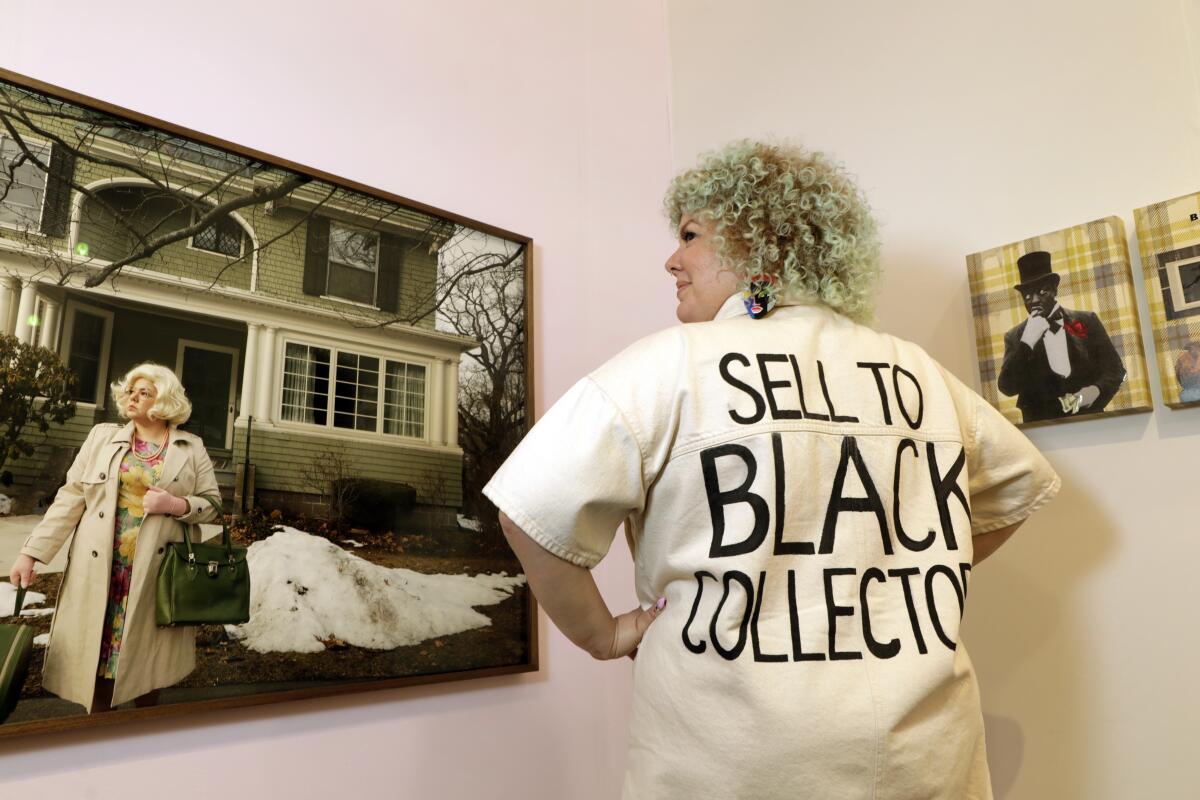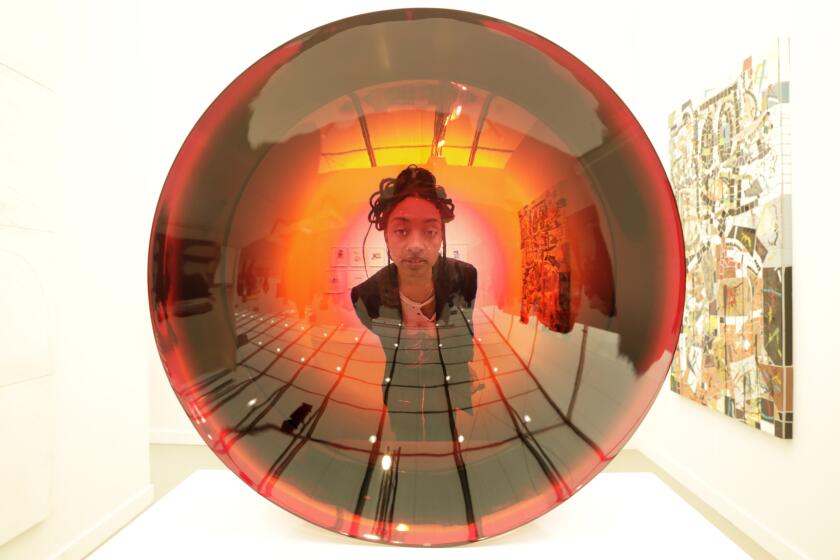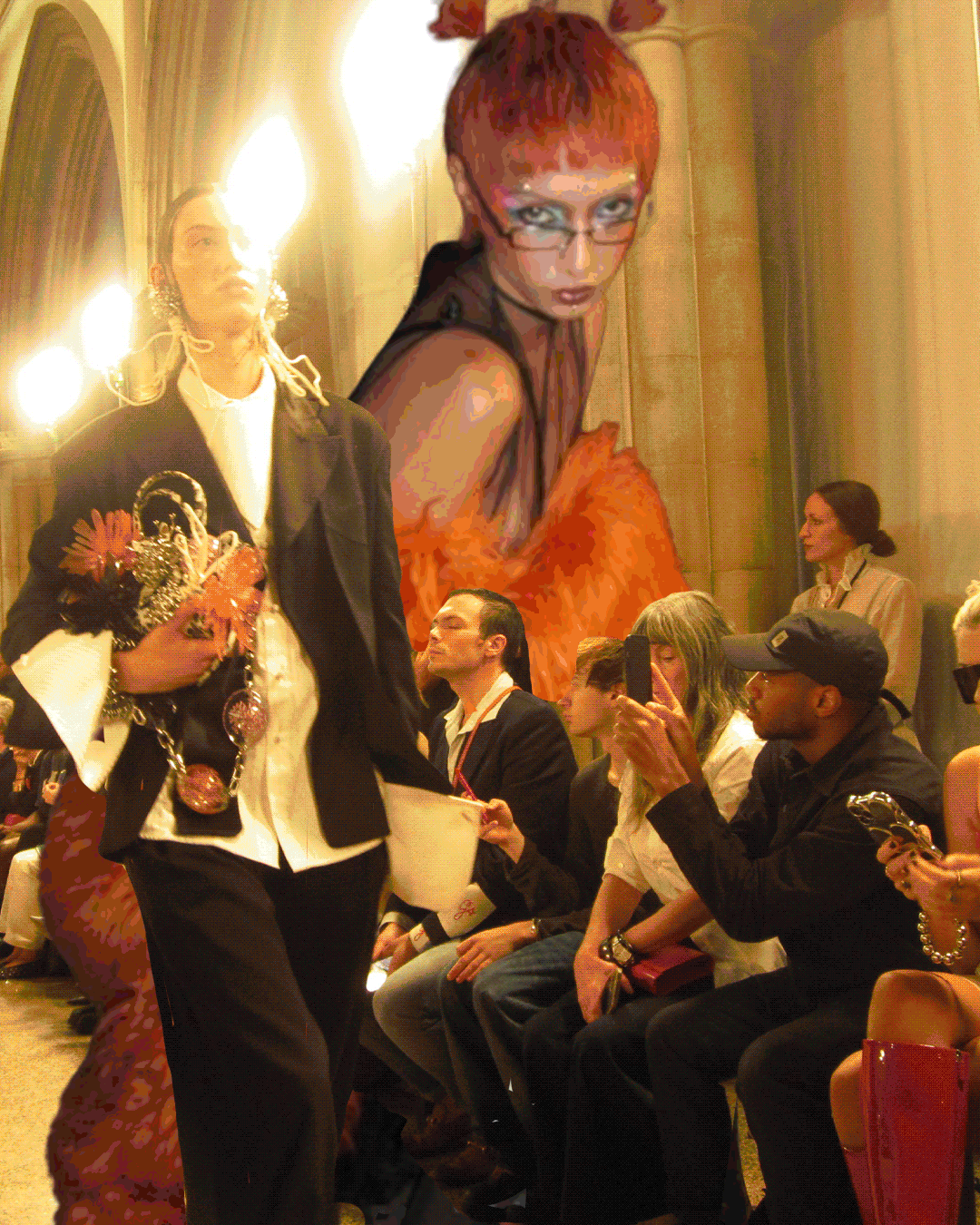Artist gets right to the point with Frieze Los Angeles: Sell to black collectors

Among the sea of style flowing through the Frieze Los Angeles VIP preview on Thursday, Genevieve Gaignard’s beige dress immediately pulled focus. The all-caps phrase emblazoned on the back of her clothing was a message to the art admirers, buyers and sellers wandering through the gallery tent: Sell to black collectors.
For Gaignard, the dress was also an opportunity to start conversations around her newest body of work in the Vielmetter booth, a brightly colored exhibition of sculpture, mixed media and self-portraiture tackling race, class and the art market itself.
Inside the booth, Gaignard stood next to her floral triangular panel emblazoned with the same message as her dress. Other works included collages combining racist images with commercialism, photos of the artist dressed in costume and a stack of white luggage topped with a mammy figurine.
Hollywood celebrity and art-world cognoscenti converge at Frieze Los Angeles’ VIP preview. The city’s buzziest art event opens to the public Friday.
As the Champagne began flowing for the preview party and people stopped in to congratulate Gaignard, the L.A.-based photographer and installation artist explained why she wanted to make a statement.
The idea was based on conversations with collectors of color and other artists, and “listening to stories of people that don’t get access to art,” she said.
“I realize I’m in a body of privilege, but I’m a person of color so that’s an interesting position to hold. I feel a responsibility to start these conversations with the folks that think I’m like them.”
This year is Gaignard’s first time presenting work at Frieze, and she was curious if people would be offended. But instead, the dress invited art lovers in to learn more.
“Everything feels grand and over the top,” Gaignard said about the fair. “Even though I’m really into what I created, it seems like a lot of people have been resonating with the work.”
And in a time where black art is being celebrated, Gaignard emphasized that “we’re more than just a moment. We’re actually completing the dialogue or the conversation because we’ve been excluded for so long. It’s hard for the majority to process that. We have to make very straightforward statements sometimes.”
More to Read
The biggest entertainment stories
Get our big stories about Hollywood, film, television, music, arts, culture and more right in your inbox as soon as they publish.
You may occasionally receive promotional content from the Los Angeles Times.












